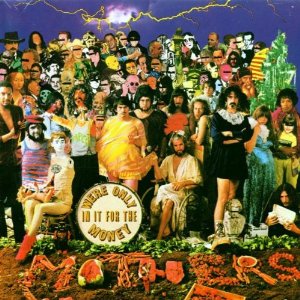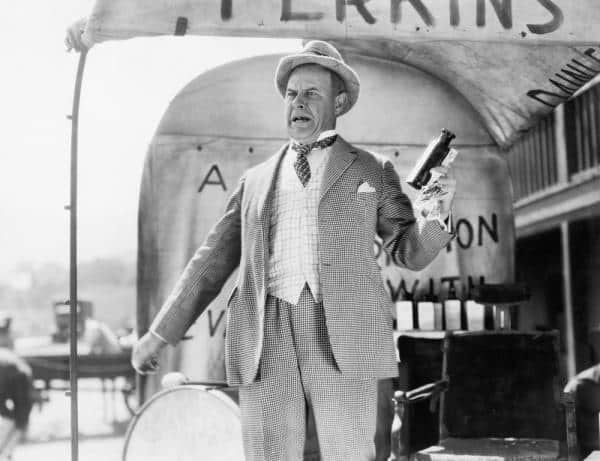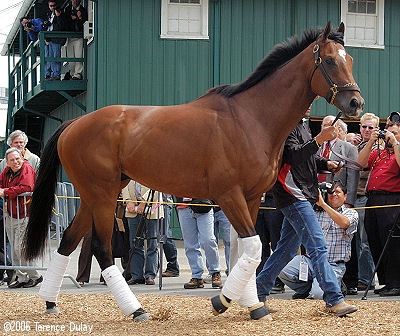 When I make some recommendation, or give some piece of advice, or perhaps have the audacity to suggest that a particular therapy or product may not be all it’s cracked up to be, it’s all in the spirit of trying to help somebody out with his or her horse, or to understand what’s really known about the various claims that are being made about any number of aspects of horse care. I don’t expect everyone to agree with me. Open and honest discussion is the best way to find out what really are the best ways to approach horse care. But every once in a while, if my recommendation or advice isn’t something that someone wanted or expected to hear – or especially if the advice or information disagrees with what that person thinks is true – that person may discount my advice (heck, the person may even get pretty nasty – take a look at some of the comments on my Facebook page), and add, “He’s only in it for the money.”
When I make some recommendation, or give some piece of advice, or perhaps have the audacity to suggest that a particular therapy or product may not be all it’s cracked up to be, it’s all in the spirit of trying to help somebody out with his or her horse, or to understand what’s really known about the various claims that are being made about any number of aspects of horse care. I don’t expect everyone to agree with me. Open and honest discussion is the best way to find out what really are the best ways to approach horse care. But every once in a while, if my recommendation or advice isn’t something that someone wanted or expected to hear – or especially if the advice or information disagrees with what that person thinks is true – that person may discount my advice (heck, the person may even get pretty nasty – take a look at some of the comments on my Facebook page), and add, “He’s only in it for the money.”
This is a pretty harsh criticism, of course, and you see the line thrown around all the time. When it’s leveled, the implication is that the individual (in this case: me), doesn’t really care about the condition or situation (in my case: the horse), but, instead, is only interested in making money. For someone that’s spent his life learning about and taking care of horses at all hours of the day and night (weekends, too) that’s pretty harsh.
Now, while harsh, on the face of it, the charge is also pretty silly. If I was really in this “just” for the money, I’m pretty well set up to play the system. I mean, I do have a veterinary license, and I could easily use my position to sell an almost limitless number of goods and services. I could acupunct, chiropract, magnetize, inject joints willy-nilly, sell supplements for this, that, and everything – heck, I could even charge a fee for subscribing to a newsletter, rather than writing about equine medicine (and other stuff) for free. Frankly, if I’m doing all of this “just for the money,” I’m doing a pretty terrible job at it. I’m missing out on tons of opportunities to increase my bottom line. Oh dopey me.
But even though it’s ridiculous, it’s still a serious charge. It’s also a very curious one, because, from where I sit, it seems that everyone who is trying to sell you some product or service from your horse is trying to make money (in fact, some of the most vocal and angry responses that I get come from people making money doing the things that I suggest might not be necessary – go figure). But when it comes to making money for veterinary services, I mean, I did go to school to practice veterinary medicine, did take out loans to do it, do support my kids by doing it, do pay the utilities because of doing it, etc., etc. And, honestly, I don’t think that anyone begrudges me that, or at least I hope not. And I’m also not aware of any group that is running around providing anxious horse owners with free goods and services on demand, no matter what those goods and services may be.
I also can’t imagine that many other people who are gainfully employed have to defend themselves for going to work every day.
“Oh, sure, Bill, I can’t believe that you’re staying late and work overtime just to finish that project. You don’t really care about your job. You’re only in it for the money.”
In fact, when I’m rubbing the sleep out of my eyes, looking at a cut on a horse’s head at 2:00 a.m., the last thing that I’m thinking about is what a great opportunity this is for me to make extra money. Mostly, I’m trying to focus my eyes in the dark – working by headlight is not nearly as much fun as you might think, no matter how little fun you think it sounds like. And, I really do cherish my sleep.
 Regardless, criticizing someone because he or she makes money at an endeavor is, fundamentally, saying that a person is a bad person. It’s a line of criticism that goes back at least back to Biblical times, although it’s a misquotation of sorts. While, of course, there are many different translations, the book First Timothy, Chapter 6, verse 10 says, “the love of money is the root of all evil.” So if you can portray someone with whom you disagree as being motivated only by money, you’re calling that person evil, you don’t even have to respond to the issue at hand, and you win (or at least you think you win) the argument by default. It’s a seductive strategy, and sometimes even disappointingly effective.
Regardless, criticizing someone because he or she makes money at an endeavor is, fundamentally, saying that a person is a bad person. It’s a line of criticism that goes back at least back to Biblical times, although it’s a misquotation of sorts. While, of course, there are many different translations, the book First Timothy, Chapter 6, verse 10 says, “the love of money is the root of all evil.” So if you can portray someone with whom you disagree as being motivated only by money, you’re calling that person evil, you don’t even have to respond to the issue at hand, and you win (or at least you think you win) the argument by default. It’s a seductive strategy, and sometimes even disappointingly effective.
There’s also a logical fallacy involved in saying that someone is “only in it for the money.” It’s called the nirvana fallacy. The nirvana fallacy – which was apparently given its name by University of California at Los Angeles (UCLA) professor Harold Demsetz, in 1969 – compares actual things with unrealistic, idealized alternatives. So, for example, while it’s certainly not a good thing to care about money to the exclusion of anything else, the fact of the matter is that for anyone to be able to go out and treat horses, eat, support a family, etc., he or she has to make money. What’s the alternative? Buying a truck, equipment, and gas so that the person can come out and see horses for free? Buy medications and supplies so that he or she can stock up someone else’s tack room? I’m sure that I’m not the only person who isn’t inclined to do that.
Anyway, I don’t mind at all when people disagree with me, in fact, as I said, I love open and honest discussion. That’s the way that medicine and science progress. In any scientific endeavor (which medicine aspires to be) people are going to have all sorts of different ideas, and not all of them are going to be right. If somebody is wrong, that’s OK, too, because in order for things to move forward, if people have different or opposing view, somebody has to be wrong.
I don’t know about you, but I’ve been wrong before. I try not to make a habit of it, of course, but for goodness sake, I do understand it if someone else has the misfortune of being wrong, because I’ve been there, too. I try to be pretty sympathetic to people who have different ideas, especially since, at least in this forum, most everybody reading is doing what they are doing because they love horses. So, at least, if you disagree with me – heck, if you disagree with anyone – there’s not really any reason to be disagreeable about it, and try to smear with an accusation like, “You’re only in it for the money.”
 Look, I think that it’s great that horse owners are sometimes starting to act more and more like rational consumers of the services veterinarians provide. I’m trying to encourage that. That’s why I’m not trying to sell you anything. If consumers of horse products and services were more rational, it would mean that veterinarians, supplement sellers, massagers, farriers, etc., etc., would regularly be challenged to explain what it is that they are charging for, and why. I mean, it’s your money, right, so why just give it away?
Look, I think that it’s great that horse owners are sometimes starting to act more and more like rational consumers of the services veterinarians provide. I’m trying to encourage that. That’s why I’m not trying to sell you anything. If consumers of horse products and services were more rational, it would mean that veterinarians, supplement sellers, massagers, farriers, etc., etc., would regularly be challenged to explain what it is that they are charging for, and why. I mean, it’s your money, right, so why just give it away?
Challenging the popular – or at least heavily advertised – is something that I regularly do, and I hope you do, too. Of course challenging an idea often gets mistaken for challenging a person, and when a person’s ideas get challenged, it can result in all sorts of finger pointing and accusations. Still, I think it’s worth the effort. I mean, really, don’t we all care about what’s best for the horse, and shouldn’t we all be trying to figure out what “best” really means? Don’t see much evil in that!










